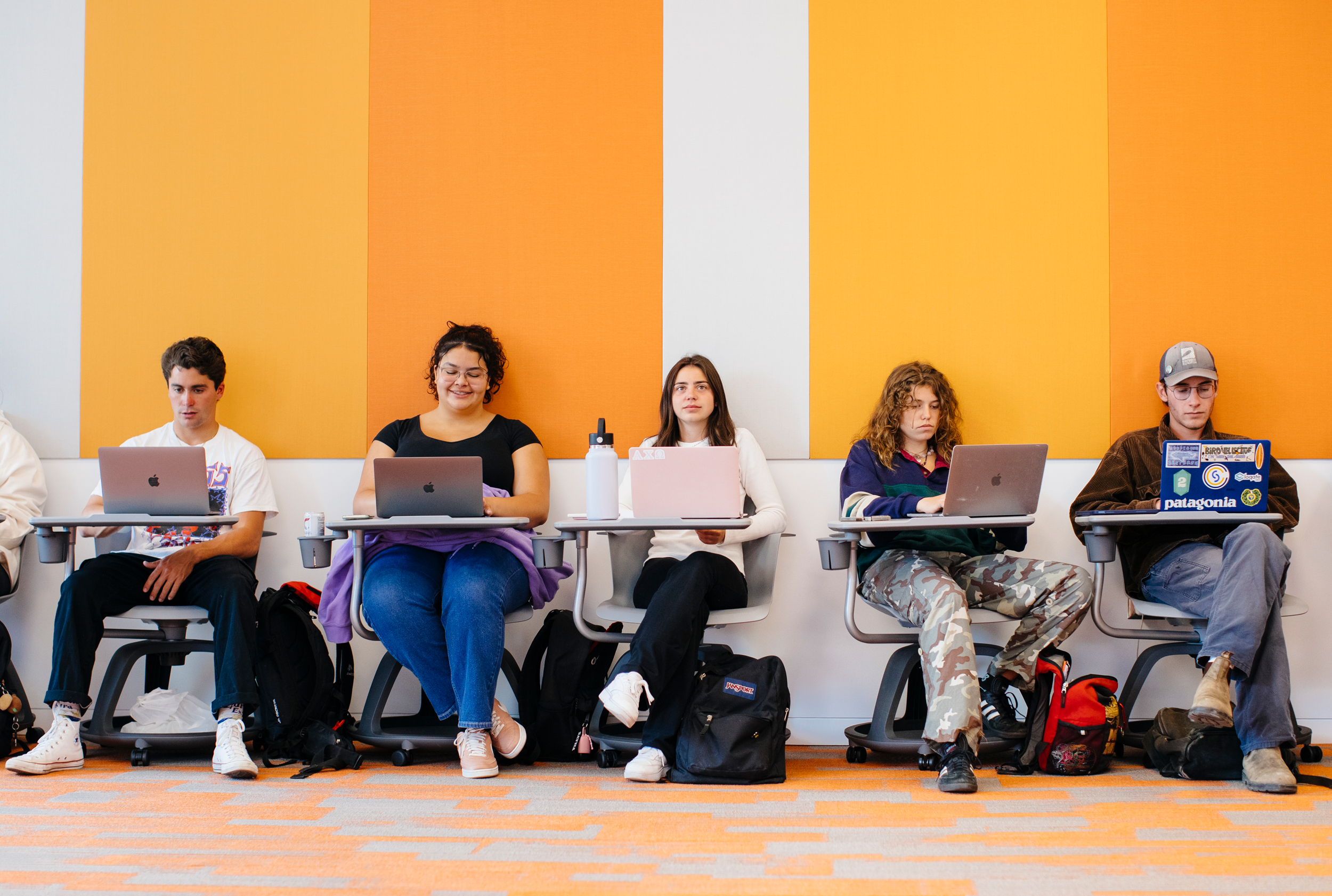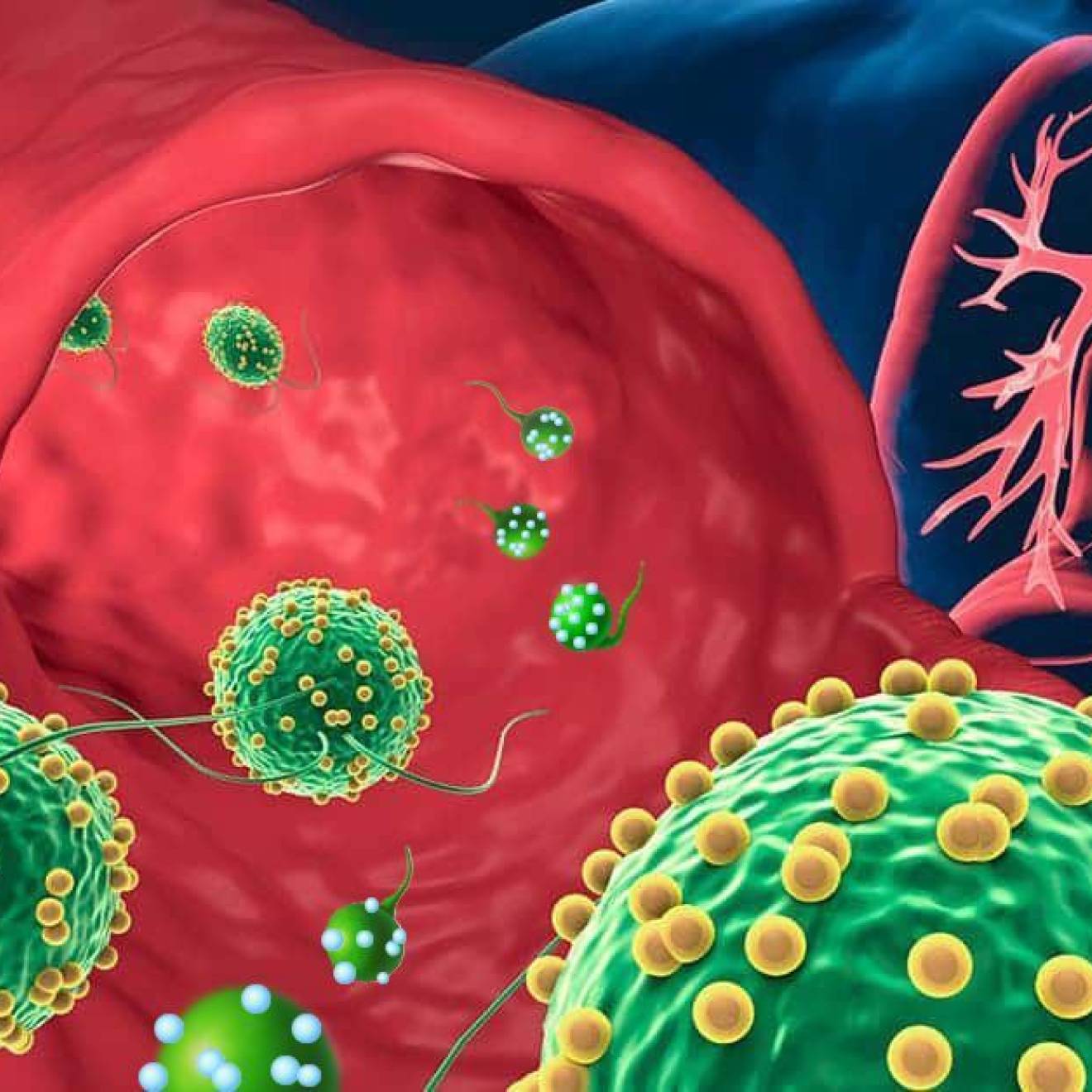Kathleen Maclay, UC Berkeley

Researchers from Stanford University and UC Berkeley report in today’s edition of Science that door-to-door canvassing by volunteers — both transgender and not — reduced voters’ prejudice against transgender people.
Last year, the study’s authors set off a firestorm of debate about the need for transparency in social science research when they raised doubts about a now-retracted study of the Los Angeles LGBT Center’s door-to-door canvassing on marriage for gay and lesbian couples by other researchers that had appeared in Science. They discovered irregularities in that study’s data in the process of conducting this follow-up study of the center’s canvassing on anti-transgender prejudice.

Credit: Farrah Kazemi/UC Berkeley
“We found that a single, approximately 10-minute conversation with a stranger produced large reductions in prejudice that persisted for at least the three months studied to date, were resistant to counterargument and affected political attitudes,” said David Broockman, an assistant professor of political economy at Stanford University’s Graduate School of Business.
He and Joshua Kalla, a Ph.D. student in political science at UC Berkeley, co-authored the study.
Kalla added that the decline in prejudice against transgender people achieved by the canvassers is comparable to the decrease in prejudice against gay and lesbian people that took more than a decade to achieve.
Testing the model
The Los Angeles LGBT Center developed and implemented the canvassing model the researchers studied. Dave Fleischer, director of the center’s Leadership LAB, welcomed the academics’ independent measurement of its canvassing program.
“Our ability to change voters’ hearts and minds has been measured, this time for real,” Fleischer said, contrasting the intensely reviewed work of Broockman and Kalla to the earlier, retracted paper.
New distinctions
When Broockman and Kalla both were graduate students at UC Berkeley last year, they uncovered data irregularities in a December 2014 Science article studying the center’s innovative grassroots approach. That article was retracted after Broockman and Kalla (along with political science and biostatistics professor Peter Aronow of Yale University) uncovered the irregularities. Broockman, Kalla and Aronow subsequently won a Leamer-Rosenthal Prize for Open Social Science for going public with their concerns.
“Our new study’s findings differ from the retracted one’s in an important way,” Kalla said. “Unlike the original claim that only gay canvassers could lastingly reduce prejudice, we find both transgender and non-transgender allies were effective canvassers. Canvassers do not need to be members of an affected group to lastingly reduce prejudice against that group.” However, the study does find that experienced canvassers appear especially effective.
The research measured the impact of the “deep canvassing” approach developed by the Los Angeles LGBT Center. It differs from a conventional canvass conversation in both length and reciprocity, with canvassers taking 10 to 15 minutes as they listen to voters’ experiences and respond conversationally rather than reciting a script or talking points. These conversations involve voters engaging in deep reflection on their experiences and views, a process involving so-called “active processing” of their ideas.
In the conversations, canvassers asked voters to reflect on experiences when they had been treated differently, and with LGBT people. Psychologists call this exercise “analogic perspective-taking,” as it involves considering what another’s experience is like by likening it to one’s own.
From January through June 2015, the Los Angeles LGBT Center partnered with Miami-based SAVE, South Florida’s largest and longest-serving LGBT organization. Together, they canvassed voters in conservative neighborhoods in Miami six months after the Miami-Dade County Commission voted to include transgender people in the county’s human rights ordinance. The study of these efforts took place in June 2015.
A decade of change in 10 minutes
The result: With a rigorous randomized trial — like a clinical drug trial — Broockman and Kalla found that the deep-canvass conversations changed approximately one in 10 voters’ attitudes about transgender people. The researchers also found an impact on feelings toward transgender people comparable to the decline in prejudice against gay and lesbian people seen between 1998 and 2012.

Credit: Stanford University photo
In repeated re-measurement, this impact remained intact for at least the three months studied to date. This enduring effect stands in contrast to other published measurements of conventional attempts at voter persuasion and prejudice reduction through TV ads or mail, or in standard phone or canvass conversations.
Although research rarely tracks the long-term impact of such activities, when it does, it has found conventional tactics tend to have little or no impact. Typically, their impact dissipates within days as voters return to their old points of view.
Broockman and Kalla also found that the conversations were broadly effective: Democratic and Republican voters, liberal and conservative voters, female and male voters, and voters who were Caucasian, Latino and African American all exhibited a profound shift.
A “real game-changer”
“The immediate practical value is that we know we are reducing anti-transgender prejudice here in Miami,” said Justin Klecha, director of campaigns at SAVE. The organization has continued deep canvassing in its ongoing campaign to pass statewide non-discrimination protections and make Miami-Dade County a more accepting place for transgender people to live and work.
“These conversations are a real game-changer for us here in Florida,” said Tony Lima, executive director of SAVE. “Because of these conversations and their impact, we’re getting closer to being the first state in the South to pass statewide protections for LGBT people.”
“When our community faces anti-LGBT ballot measures, it has become abundantly clear we need more than 30-second ads to win,” said Los Angeles LGBT Center CEO Lorri Jean. “We’ve long believed that if LGBT people and our allies could meet and engage voters in heartfelt conversations, we could reduce their prejudice. It’s exciting to have the data to prove that deep canvassing works, and gratifying to share this powerful new approach with LGBT leaders and progressive allies throughout the country.”
The independent study was made possible by the Gill Foundation, which provided grants for the data measurement costs incurred by Broockman and Kalla for the research published in Science, as well as significant funding for both SAVE and the Los Angeles LGBT Center to conduct the prejudice-reduction canvassing. The participation of the Los Angeles LGBT Center was also made possible by support from the Walter and Evelyn Haas Jr. Fund and the William B. Wiener Jr. Foundation.
Neither of the study’s authors is affiliated with the Los Angeles LGBT Center or SAVE, nor did they receive compensation from them for the research.
Implications for 2016 election
Although the broader applicability of this approach to other issues is an area for future research, Broockman underscored the significance of these findings to the 2016 election.
“These results suggest that campaigns could be more effective by engaging in more one-on-one conversations with voters, rather than merely flooding airwaves and mailboxes,” he said. “The fact that minds could be changed across partisan lines and on a controversial social issue is encouraging for the power of face-to-face discourse.”
“The bottom line is that we have new insight into how to reduce prejudice against transgender people,” said Fleischer. “Considering the recent loss at the ballot box in Houston, the new anti-LGBT legislation in North Carolina and the threat of future anti-LGBT ballot measures and bills, this study has real practical importance. We in the LGBT community can put ourselves in a better position to win if we start having deep-canvass conversations now, well in advance of a flash point.”
Related Information
- Kalla and Broockman write for Vox about why politicians should talk face-to-face with voters they hope to persuade.
- Broockman, Kalla and UC Berkeley political science and statistics professor Jasjeet Sekhon have developed new experimental methods to produce reliable assessments of people’s attitudes based on a fairly small survey. (This link will be live at 11 PDT, 2 p.m., EDT on April 7.)

